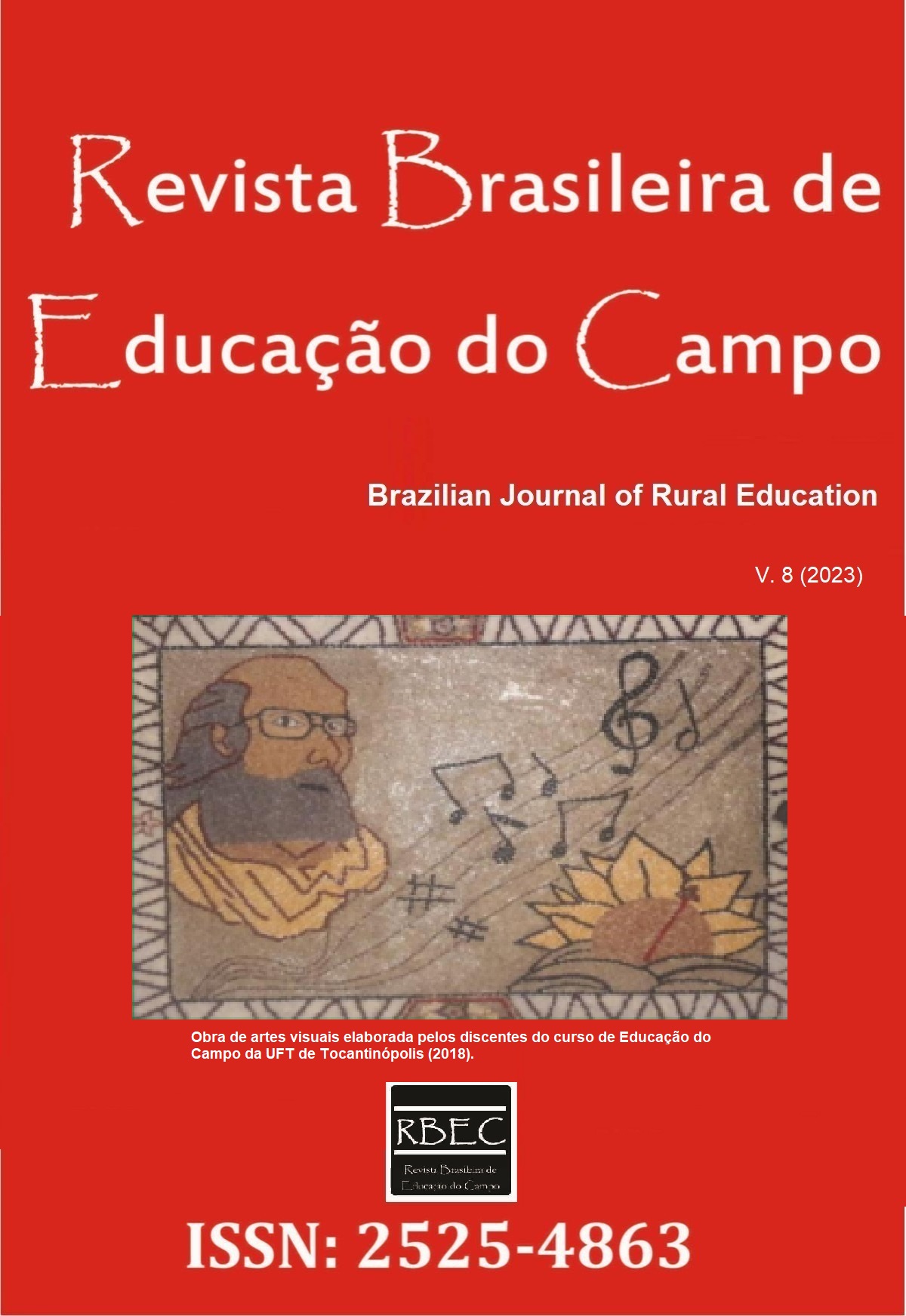Comunalizar la escuela bilingüe desde los suelos que respiramos: Voces y prácticas comunitarias de maestras y maestros chinantecos en Oaxaca
DOI:
https://doi.org/10.20873/uft.rbec.e14912Abstract
The paper presents an experience on Community Education in rural indigenous communities in the Chinantla region in the State of Oaxaca. Chinantec indigenous teachers have given themselves the historical task of building, through courses, workshops and collective work meetings, full of analysis and reflection, a path of teacher self-training through their community being, knowing and doing inspired from the movement state pedagogical system and their own communal socio-cultural environments. The symmetrical interaction between the school and the communities has been strengthened through the years of work. The inclusion in decision-making with parents, authorities and local personalities and guests has allowed them to build decolonizing community pedagogical measures for educational life (preschool, primary and community secondary). These forms and school practices also consider their own issues that allow processes to demand community dynamics and structures, such as knowledge and rural community knowledge that are generated, for example, in the cargo system, community tequios, work for subsistence, community health and other issues drawn from these very own situations. In different words, they highlight communal learning from what is observed, heard and done in community. Communality is pointed out as a practical-explanatory horizon that helps to articulate communal knowledge and knowledge in school practices, then other educational experiences from a conception of collective learning -by understanding-. “Communalize education”, among others, is a principle of the pedagogical movement that guides the educational work among the Chinantecos as community subjects.Downloads
References
Bonilla, Ó. [et al.]. (2022). Retornar al origen: narrativas ancestrales sobre humanidad, tiempo y mundo. Ciudad Autónoma de Buenos Aires: CLACSO; Montevideo: UNESCO.
Foucault, Michel. (1975) Vigilar y castigar. S.XXI. México.
Grinberg, S. (2022). Dispositivos, gubernamentalidad y escolarización en tiempos gerenciales. In Silencios que gritan en la escuela: dispositivos, espacio urbano y desigualdades (pp. 29-62). Ciudad Autónoma de Buenos Aires: CLACSO; San Martín: UNSAM. https://doi.org/10.2307/j.ctv2v88d24.5
Hidalgo, C. M. D. (2019). Reflexionando en Colectivo. Prácticas Comunitarias. UPN-Tuxtepec, Oaxaca. México.
Maldonado, T. N. (2007). Sobre la colonialidad del ser: contribuciones al desarrollo de un concepto. In El giro decolonial. Reflexiones para una diversidad epistémica más allá del capitalismo global (pp. 127-167). Biblioteca Universitaria CSH. Pontificia Universidad Javeriana. Colombia.
Quijano, A. (1997). Colonialidad del poder, cultura y conocimiento en América Latina. In Anuario Mariateguiano, 9(9), Lima, Perú.
Robles Hernández, S., & Cardoza Jiménez, R. (Comp.) (2007). Floriberto Díaz. Escrito. Comunalidad, energía viva del pensamiento Mixe. México: UNAM.
Rockwell, E. [Canal de profesores del DIE-CINVESTAV]. (2016, 6 de enero). Conferencia de Elsie Rockwell y panel de cierre: El Trabajo de Educar, entre la guerra y el común. [Video]. YouTube. https://www.youtube.com/watch?v=48EueRorIJ4
Walsh, C. (2014). Pedagogías decoloniales caminando y preguntando. Notas a Paulo Freire desde Abya Yala. Revista Entramados. Educación y Sociedad, 17-31.
Published
How to Cite
Issue
Section
License
Copyright (c) 2023 Miguel Dario Higalgo Castro, Roberto Sánchez Linares, Pablo Ojeda Carrillo

This work is licensed under a Creative Commons Attribution 4.0 International License.
Proposal for Copyright Notice Creative Commons
1. Policy Proposal to Open Access Journals
Authors who publish with this journal agree to the following terms:
A. Authors retain copyright and grant the journal right of first publication with the work simultaneously licensed under the Creative Commons Attribution License that allows sharing the work with recognition of its initial publication in this journal.
B. Authors are able to take on additional contracts separately, non-exclusive distribution of the version of the paper published in this journal (ex .: publish in institutional repository or as a book), with an acknowledgment of its initial publication in this journal.
C. Authors are permitted and encouraged to post their work online (eg .: in institutional repositories or on their website) at any point before or during the editorial process, as it can lead to productive exchanges, as well as increase the impact and the citation of published work (See the Effect of Open Access).















